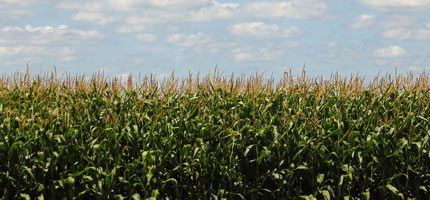From the North America region: Questions worth pondering
The Bread of Life: the question
North American life as a whole has for too long been based on material excess. We are five percent of the global population consuming 25 percent of the world’s resources. When the people of Israel did this with the manna, it became foul (Ex 16:13-21).
How do we perpetuate the lie that the abundant life means prosperity and material excess, no matter the cost to our neighbor? How do we—who have enough bread, and more than enough—move from always wanting more “bread” to a deep hunger for the Bread of Life? How does being filled with the Bread of Life impact our provisions for daily bread—not only for ourselves but for our neighbor? What is truly enough for the abundant life?
Living water (Jn 4:1-26)
Clean, safe water is now recognized as a miraculous gift in and of itself, but also seen by some as a commodity, instead of a right for all. It is becoming a significant factor in many armed conflicts around the globe. Changing weather patterns make the once abundant resource scarce.
How can the living water offered by Christ help to solve the growing problems of access to clean and safe water?
As disciples, we are called to be springs of this living water, satisfying others with the gifts of God (Jn 4:14).
How can we as individuals, churches, the communion, the whole body of Christ in the world, live our call together to be springs of living water?
Water features prominently in our entrance rite to the Christian family, Holy Baptism.
How does being washed in the life-giving waters of baptism both make clear our human thirst and dire need for God’s renewal, while giving us the strength and call to bring about that renewal?
Bread of Life (Jn 6:1-71)
“You are what you eat,” a common expression in North America, reminds us that our physical health is no better than the quality of nourishment we provide our bodies. “Preach the gospel; use words if necessary.” In that oft-quoted summary, St Francis reminds us that what we do powerfully communicates what we believe. The strong messages leading up to our global super-recession have lured us into believing that more is better. When will it be enough? Jesus, recognizing that we, like the first disciples, are sometimes slow to catch on, makes it very clear: “I am (egw eimi (ego eimi)) the bread of life” (Jn 6:35).
Why do we, who enjoy an excess of daily bread, seem content even while our sisters and brothers in the communion, God’s beloved creatures, created in God’s image, have none? What can we learn from one another about what is enough? What practices in our life and in our communities help us abide in the Bread of Life? What practices hinder? How does receiving the Bread of Life, with the Lord Jesus himself our only host around the table of Holy Communion, help us deal with these questions?
The night Jesus walked on the sea (Jn 6:16-21)
The darkness is thick, the wind is strong, the waves are big, the future is uncertain, and yet Jesus, God’s presence among us and in the world, is with us: “It is I,” (egw eimi (ego eimi)) he says. Immanuel, God is with us. We—all of us, all of God’s beloved children—are literally in the same boat, regardless of our differences and disagreements, because the same One abides in us and with us.
What difference does it make that God is with us—for your life? For the community in which you live? For the world? For the communion?

